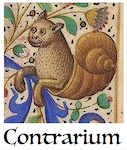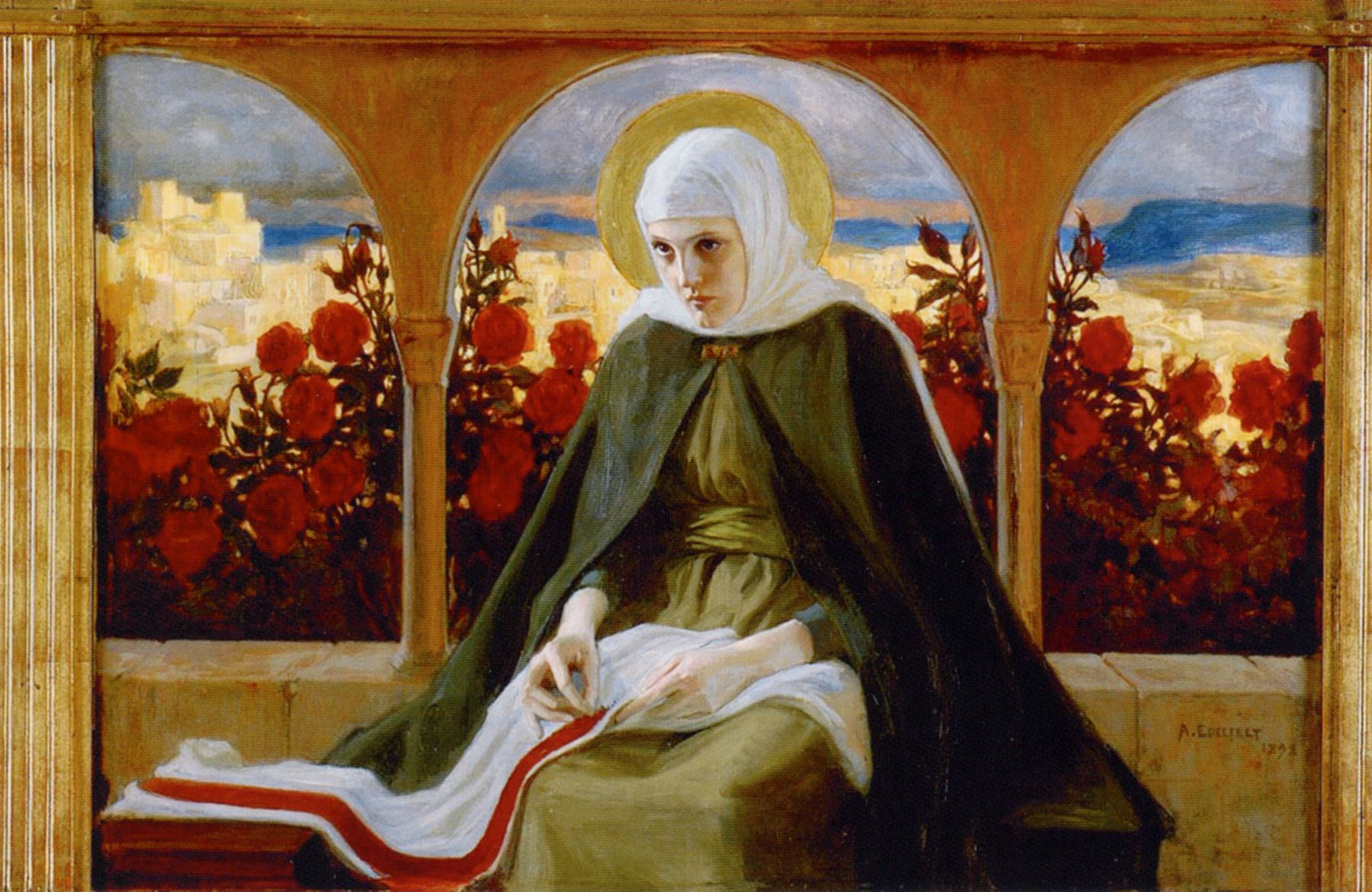Was it bad for the West to abandon religion?
Looking at it from a secular perspective
I’ve been thinking about religion lately. As we all know, the West has all but abandoned Christianity: the little of it that remains is not very different from progressivism; and progressivism itself seems to have morphed into a new type of religion, with its own processions, prayers and rituals of penance.
Of course, the process is not even barely new. It has been happening for a long time, some say since the French Revolution, and others say that even before, during the Reformation. In 1867, Matthew Arnold wrote “Dover Beach”, a beautiful poem about the “sea of faith” retreating into nothingness, and that was before Nietzsche famously sentenced that “God is dead” in 1882. The ending is sort of a description of our current post-religious world, a scary place with no safety net to fall back on:
Ah, love, let us be true
To one another! for the world, which seems
To lie before us like a land of dreams,
So various, so beautiful, so new,
Hath really neither joy, nor love, nor light,
Nor certitude, nor peace, nor help for pain;
And we are here as on a darkling plain
Swept with confused alarms of struggle and flight,
Where ignorant armies clash by night.
However, I don’t want here to talk about God or miracles or supernatural events. I am sure they exist, and demons and ghosts too: there are more things between Heaven and Earth that are dreamt in our limited human imagination. However, what I’m concerned here is with something else: religion as a form of community.
The Church as meeting place
A week or so ago, while outside in the streets of Jyväskylä a yearly music festival was taking place, which included a DJ dressed with rainbow colours and scantily clad Finnish ladies “twerking” to the latest American hip hop rhythm, I was attending Latin Mass and playing innocent board games with a group of young Catholic Finns. Well, to be fair, not all were Catholics — there was one infiltrated Protestant. Not all were young — I am pretty old, and there was someone else my own age. And not all were Finns — there was a German, a Brazilian and a Vietnamese too. But enough of them were Catholic Finns, and most of them were Catholic converts from Protestantism.
And I realized that a church is (or used to be) a great place to meet people, in an environment of relatively better values, that is, with a higher probability that the people there would be more wholesome than at a nightclub and that there would not be robbers, drug dealers, perverts or scammers among them. Of course, these days, you never know.
But part of the reasons for the infiltration and dismantling of churches — and not just there, but even innocent organizations such as the Boy Scouts — was to remove from existence those small peaceful shrines, and substitute them for increasingly obnoxious “safe spaces” that are anything but.
In the old times, a church used to be not merely a place where you’d go to hear mass once a year. It was a place to celebrate each holiday and season, to learn values, to meet your neighbours, to meet a husband or a wife, to get married, to educate your children, to seek guidance, to find comfort for pain. The local priest was a teacher, a psychiatrist, a newscaster, an entertainer, a doctor, a leader.
Of course, churches were not perfect, and today they are much worse. They are also part of today’s corrupt system, and, as such, they took part completely in the Covid operation, forcing masks and vaccine passes and all. It was not even possible to have holy water in the fountain because of a “virus” — something that for some reason had never been a problem before.
Material comfort is good, but it’s not enough. Even those who are up to their necks in the secular material world are searching for something, “something else” as they call it, be it in new age cults or “Science!” or BLM marches. Everyone wants some kind of explanation or “meaning” for this dream called life — or, at least, some reason to wake up and go to work every morning.
Christianity used to provide this, as well as some sort of unity in society. But in the modern progressive world, Christianity is no longer fashionable, or, in the rare cases where it still exists, it has been changed into a different type of religion that is more concerned with political and social issues than with saving souls.
Besides, in today’s society there are so many different groups living together in permanent conflict (a conflict that is gleefully stoked from above) — blacks versus whites, natives versus immigrants, transgenders versus TERFs, vaxxers vs antivaxxers, etc. — that most people can’t even get along with their neighbours, much less be part of any type of community, be it religious or not.
Now, the problem in particular of the Catholic Church, is that while they are still some good people inside it, the hierarchy at the top is mostly rotten. Pope Francis is no pope, and the current Vatican has been transformed into a den of homosexuals — it’s not me saying this, but traditional Catholic bloggers such as Ann Barnhardt, who probably knows what she’s talking about.
The Conversion
But then again, perhaps it was always so. In his Divine Comedy, Dante put several Popes in Hell, and there’s a famous story by Boccaccio about the conversion of a Jew. The story goes like this: Giannotto, a Christian man, tries to convince his Jewish friend, Abraham, to become a Christian. The Jew accepts, but on one condition: that he will go first to Rome, to see up close the vicar of God and his Cardinals to check the holy life they lead.
On hearing this, the Christian becomes desperate. His friend will never convert, “for if he goes to the court of Rome and sees what foul and wicked lives the clergy lead, not only will he not become a Christian, but, if he had already turned Christian, he would become a Jew again without fail.”
Giannotto, therefore, tries by all means to dissuade his friend from going to Rome, but to no avail. Abraham goes there, and in Rome he closely observes the Pope and Cardinals, realizing that “practically all of them from the highest to the lowest were flagrantly given to the sin of lust, not only of the natural variety, but also of the sodomitic, without the slightest display of shame or remorse…” And greed, avarice, gluttony, too.
On his return, Giannotto asks what opinion has he formed of the people in Rome. Abraham’s reply:
“A bad one, and may God deal harshly with the whole lot of them. And my reason for telling you so is that, unless I formed a wrong impression, nobody there who was connected with the Church, seemed to me to display the slightest sign of holiness, piety, charity, moral rectitude, or any other virtue. On the contrary, it seemed to me that they were all so steeped in lust, greed, avarice, fraud, envy, pride, and other like sins and worse (if indeed that is possible), that I regard the place as a hotbed for diabolical rather than devotional purposes. As far as I can judge, it seems to me that your pontiff, and all of the others too, are doing their level best to reduce the Christian religion to naught and drive it from the face of the earth, whereas they are the very people who should be its foundation and support.”
Giannotto is naturally crushed, but just then Abraham continues:
“Since it is evident to me that their attempts are unavailing, and that your religion continues to grow in popularity, and become more splendid and illustrious, I can only conclude that, being a more holy and genuine religion than any of the others, it deservedly has the Holy Ghost as its foundation and support. So whereas earlier I stood firm and unyielding against your entreaties and refused to turn Christian, I now tell you quite plainly that nothing in the world could prevent me from becoming a Christian. Let us therefore go to the church where, in accordance with the traditional rite of your holy faith, you shall have me baptized.”
The Future
You may think that Bocaccio’s satirical story is a harsh criticism of the Catholic Church, and while it is so in many ways, Boccaccio worked for the Church and was a good Catholic until the end of this days. Like Dante before him, he criticized the corrupt hierarchy in order to try to improve the Church, not to destroy it.
Seeing young people celebrating Latin Masses and discussing theology and current events from a decidedly non-mainstream perspective makes me a bit more confident in the future. One of the girls, a beautiful young woman with a luminous smile, said that the challenge of being part of a Christian minority in an increasingly anti-Christian world gave her even more reason to go on. Difficulties make our strength and faith grow. Far from giving up, she was even cheerful in the face of adversity.
Many people feel despair at the current state of the world. But perhaps that’s not the correct way to see it. Only God knows what the future will bring. Yet, not all is lost, not all is bad, and hope springs Eternal.



Somehow it brings to mind a quote from Bernard Shaw: The fact that a believer is happier is happier than an atheist is no more to the point than a drunk man is hapopier than a sober one.” Actually, I don’t have the words memorized, but the idea is there. 🙂
G. B. Shaw — a very witty guy, to be sure — was of course an atheist, and he was a great rival of contemporary Catholic writers such as G. K. Chesterton and Hilaire Belloc (whom he called “Chesterbelloc”). But let me offer as a rebuttal two quotes by them:
“When men choose not to believe in God, they do not thereafter believe in nothing, they then become capable of believing in anything.” ― G.K. Chesterton
“The Catholic Church is an institution I am bound to hold divine—but for unbelievers a proof of its divinity might be found in the fact that no merely human institution conducted with such knavish imbecility would have lasted a fortnight.” — Hilaire Belloc
Amazing that I was onle when that poped up. Anyway, I see no advantage there. I did remember a debate they once had where G.K. said “If people saw you, they’d think there was a famine in England.
Shaw replied “And if they saw you, they’d know the reason for it.”
Anyway, that was interesting. Thanks.